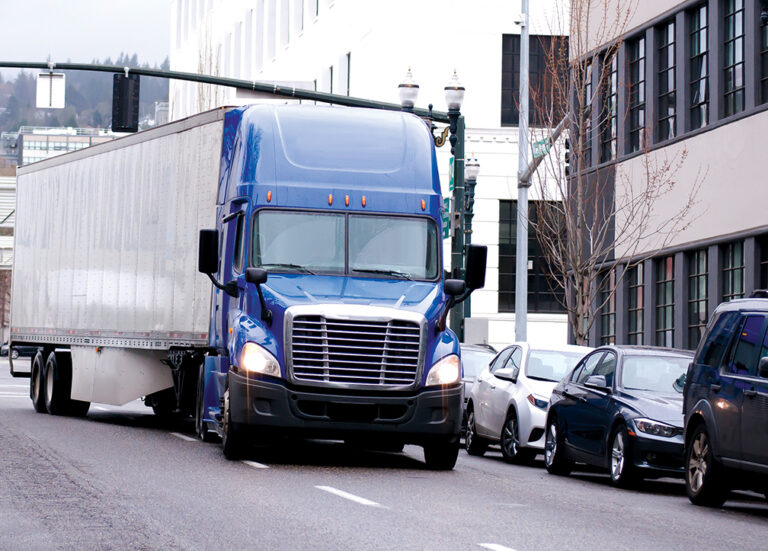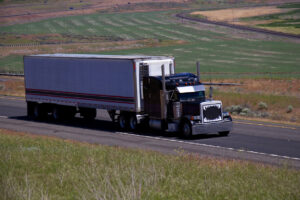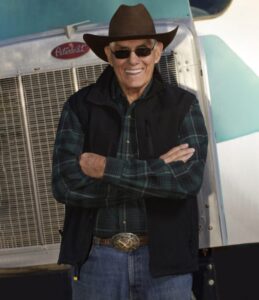Sure, safety is a priority. You make safety a priority in everything you do. You aren’t alone. Carriers emblazon the idea across their web pages, and some even put it on their trucks. Company executives, safety managers and driver recruiters incorporate the term into speeches and selling points.
But there’s a problem with having safety as a priority. It isn’t good enough.
A “priority,” according to most dictionaries, is something that is important. It comes before other items on a list. So, putting safety at the top of the list is a good thing, right? Yes … and no.
The problem with priorities is that they change, often due to circumstances. Take fuel, for example. When the fuel gauge registers a quarter tank, you might look for a truck stop to fill up. Perhaps you prefer a certain truck stop or chain of truck stops. Maybe you’re looking for the best price, or one with your favorite fast food. Maybe a shower — or just a clean rest room — is your motivation.
When the gauge has been resting on “E” for a while, stopping for fuel moves to the top of your priority list. You may choose to stop at the first place see, even if it isn’t your favorite.
When the fuel tanks are full, your next fill-up may not be a concern at all.
The point? Even though safety is a priority, its ranking on the priority list isn’t locked. When you’re behind schedule, or when there’s an angry dispatcher or a distraught spouse on the phone, your mind gravitates towards solving an immediate problem.
No, you aren’t likely to make a decision that says, “Forget safety, it’s not important today.” You might, however, go a little faster to make up time, or drive through a yellow light you would normally stop for. Safety often comes down to a series of small decisions.
Years ago, a risk manager at Great West Insurance by the name of David McLaughlin considered the issue. He reasoned that no list of safe driving steps, techniques or keys could be effective unless the driver cared enough about safety to follow them.
McLaughlin’s breakthrough safe-driving program, “Ethics and Techniques,” began by addressing why drivers should care about safety before moving into the “how” of specific steps. He advised drivers not to buy into statistics that show fewer accidents than the previous year or reduced numbers of casualties, stressing that even one death due to collisions is too many.
He said safety must be a value, not a priority. That’s different from a priority because our values are deeply rooted. They are beliefs that are a part of who we are, and they aren’t easily changed. Our values can shape our priorities, but they go much deeper. We aren’t likely to compromise our values.
By holding safety as a value, we can look at traffic mishaps in a different way. Instead of worrying about whose fault a collision was, we can examine ways to prevent the collision in the first place. After all, when someone loses a life, does it really matter who’s at fault?
A value of safety means setting rules that guide your decisions. Instead of worrying about the importance of a text message, for example, you’ll stick with the rule of never reading text messages while driving. You’ll maintain your speed, even if you’re behind schedule. You’ll choose safety every time.
But making safety a personal value goes further. Professional drivers are taught a variety of defensive driving skills. The premise, of course, is that each driver must defend themselves from all the other drivers on the road. It’s a given that accidents will occur, but we must make sure we aren’t involved, right?
A key component of McLaughlin’s training is the ability to see the humanity behind the drivers. Each driver is a person — someone’s parent or child or spouse or sweetheart or friend. When we view them as bad drivers, “four wheelers” or simply “motorists,” we fail to acknowledge that each is a person. We see them as threats to defend against, rather than fellow human beings that we can help.
Back in the 1960s, the National Safety Council put out public service announcements that were played on television and radio. The theme of these announcements was, “Watch out for the other guy.” The premise was that drivers could avoid accidents by being aware of the potential actions of other motorists who might, for example, fail to stop at a stop sign.
“Watch out for the other guy” can have more than one meaning. It can certainly mean being prepared to defend ourselves against the driving mistakes of others. But it can also mean looking out for one another, going beyond staying out of an accident to helping the other driver stay out of one, too.
Here’s one example. You’re making a left turn across a multi-lane highway. Oncoming traffic is heavy, and you have to wait for an opening. Finally, there’s a gap. It’ll be close, but you’ve already waited too long and need to get going. Besides, the oncoming traffic will surely see your huge truck in the intersection and slow down, right? How could they not?
Here’s how: A husband whose reactions are slowed from fatigue reacts too late. A young mother trying to calm a crying baby in the back seat never sees your rig. A teen is answering a text. An elderly driver doesn’t see well anymore. There are a thousand reasons why they should have stopped, but….
You’ll face situations every day where your decisions will cause other drivers to make decisions. Some of those will be the wrong decisions. You can’t control their actions, but you can help avoid creating a situation where they might make a wrong decision. You can help them get home safely, too.
As we approach the time of year known for giving, that’s a wonderful gift to share.
Cliff Abbott is an experienced commercial vehicle driver and owner-operator who still holds a CDL in his home state of Alabama. In nearly 40 years in trucking, he’s been an instructor and trainer and has managed safety and recruiting operations for several carriers. Having never lost his love of the road, Cliff has written a book and hundreds of songs and has been writing for The Trucker for more than a decade.











